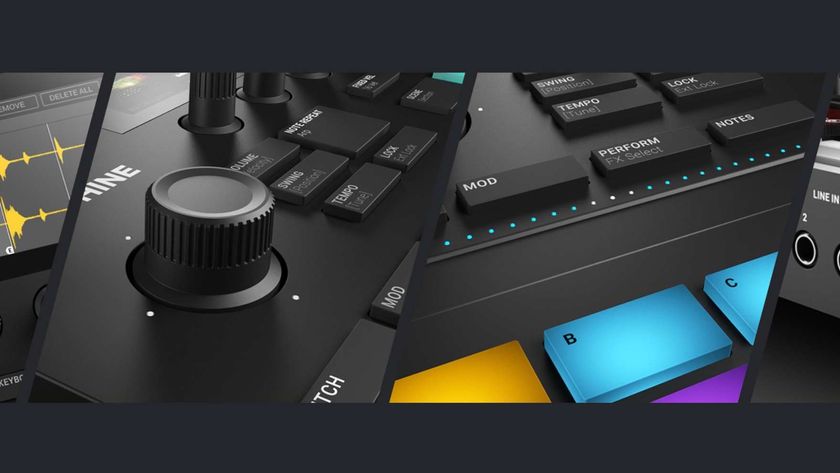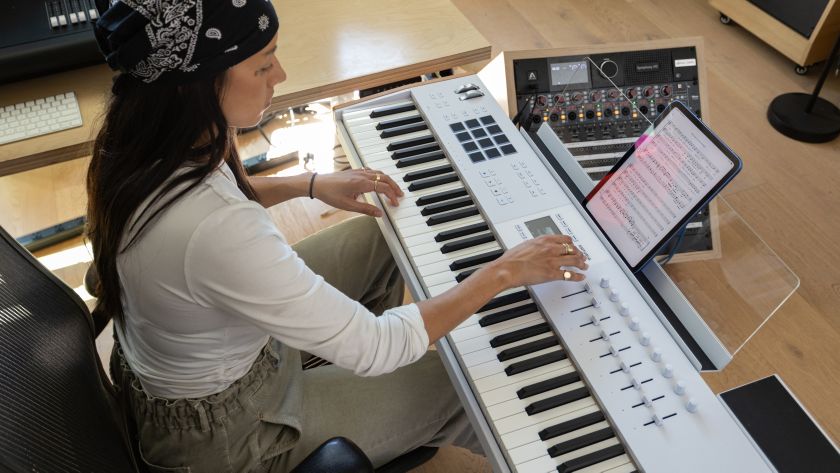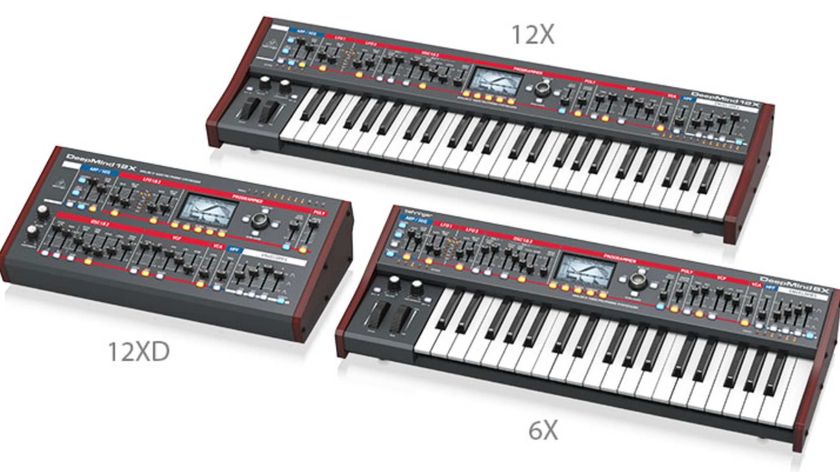The best new MIDI keyboards and controllers of NAMM 2020
Arturia, Novation, Nektar and Roland all came up with the goods
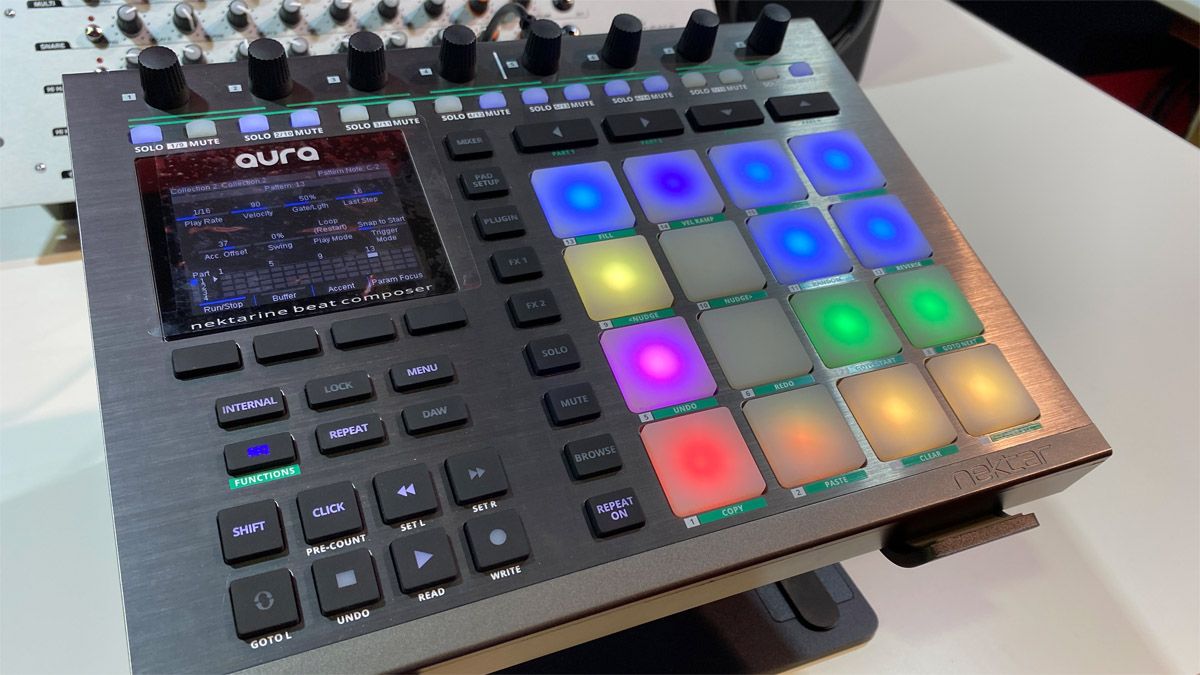
NAMM 2020: The days of me-too MIDI keyboards and controllers being launched at NAMM are well and truly over, with manufacturers now realising that they have to up their games if they want punters to invest in a new one.
The most obvious trend is for MIDI keyboards and other control surfaces that contain sequencers that enable you to trigger not only the sounds inside your computer, but also your hardware synths and drum machines. In fact, some can work standalone, with no computer involved at all.
Here, then is our round-up of the finest MIDI controllers of NAMM 2020, starting with the one that we consider to be the best-in-show..
WINNER: Arturia KeyStep Pro
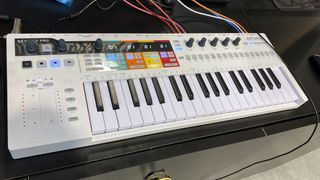
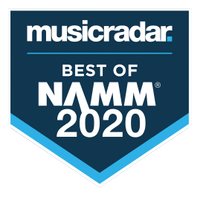
As its name suggests, the 37-note KeyStep Pro combines elements of Arturia’s existing KeyStep and BeatStep Pro devices. Much like the latter of those, the KeyStep Pro is designed for use with both hardware and software, combining MIDI, USB and analogue CV/gate outputs, allowing for connection to hardware instruments, modular systems and plugins/DAWs simultaneously.
This is more than just a straight-up controller, though; there are four polyphonic sequencer tracks onboard, allowing the KeyStep Pro to take control of multiple instruments at once. As such, it has the potential to become an all-powerful studio hub.
Read more: Could Arturia’s KeyStep Pro MIDI keyboard be your new studio hub?
Nektar Aura
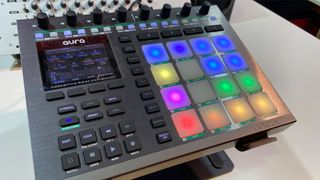
Nektar’s Aura is a beat- and performance-focused pad controller and MIDI sequencer that looks like it has some pretty advanced features. In fact, with a TFT colour display and tight plugin and DAW integration - plus the option to sequence your MIDI hardware - it has the potential to sit right at the centre of your studio.
Get the MusicRadar Newsletter
Want all the hottest music and gear news, reviews, deals, features and more, direct to your inbox? Sign up here.
There’s no shortage of competition in the world of MIDI pad controllers - did somebody say Maschine and Push 2? - but Aura certainly looks to have a lot going for it, and if it works as promised, could be a very attractive option.
Read more: Nektar’s Aura beatmaker and MIDI sequencer looks smarter than your average pad controller
Novation Launchpad Pro Mk3
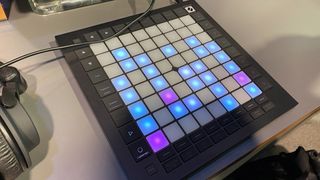
As before, Launchpad Pro is great for working with Ableton Live: it offers dedicated controls for clip and scene launching, transport, quantising and duplicating, while access to the tap tempo, Print To Clip and Capture MIDI features is now onboard, too. There’s also a Chord Mode that lets you build and play chords straight from the grid.
But there’s more: Launchpad Pro now contains a powerful MIDI sequencer that can be used to drive both your plugins and hardware gear. Setups can be configured in Novation’s Components software, and there are eight Custom Modes to work with.
The most powerful and flexible Launchpad yet? You betcha.
Read more: Novation’s new Launchpad Pro comes with a MIDI sequencer for controlling your plugins and hardware
Lumatone
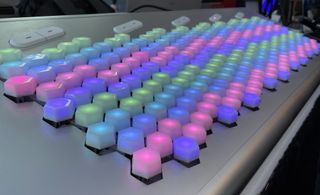
We’ve seen isomorphic keyboards before, but we doubt that there’s ever been one that looks quite as nice as Lumatone. This marries ancient music theory concepts with some state-of-the-art design.
Designed for microtonal composers and isomorphic keyboard enthusiasts in general - and, yes, they do exist - Lumatone offers 275 velocity-sensitive diagonal keys, each of which can have its MIDI note and LED colour programmed individually. These gradually rise to make them more playable. There are 10 onboard preset buttons, and the unit has a premium anodised aluminium case.
And that’s about it as far as the design goes, but the Lumatone could open up a whole new world of music-making potential.
Read more: Lumatone could be the coolest isomorphic MIDI keyboard we’ve ever seen
Vochlea Dubler
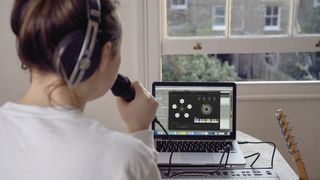
Following a successful Kickstarter campaign in 2019, Vochlea Music has started shipping the Dubler Studio Kit, a real-time vocal MIDI controller. This enables you to sing melodic and rhythmic phrases and have them instantly turned into MIDI data that can be played back by your favourite plugins in your DAW.
There’s obvious potential here - particularly if you can’t play an instrument - and as well as letting you create the likes of melodies and beats, you can also use Dubler to manipulate effects and filters by making specific sounds (hmmms, laaas and oohhhs, for example).
Read more: Can the Dubler Studio Kit turn your voice into the ultimate MIDI controller?
Roland A-88MKII
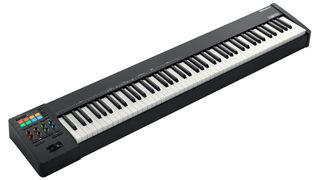
Having been one of the co-founders of the original MIDI spec, it seems fitting that Roland should also be one of the first companies to announce a MIDI 2.0 ready product - the A-88MKII MIDI keyboard controller.
This 88-note instrument includes the same Ivory Feel PHA-4 keyboard that you’ll find in other premium Roland products, and has a rigid, wooden construction. It includes high-resolution sensing and what’s described as ‘lightning-fast response’, meaning that you should be able to play with greater levels of expression and ‘feel’.
Roland assures us that the A-88MKII is ready to take full advantage of all the high-resolution control and extended capabilities that MIDI 2.0 has to offer. Whether most musicians will feel the benefit from these remains to be seen, but we're keen to find out.
Read more: Roland’s A-88MKII MIDI keyboard is its first MIDI 2.0-ready instrument
Akai MPC One
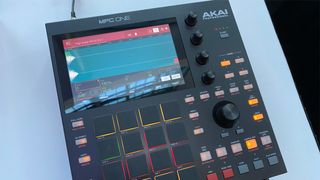
OK, we're cheating a bit here because the MPC One can actually be used as a standalone instrument, but, as with the other MPCs in the range, the One can also act as a controller for the (included) desktop version of the MPC 2.0 software.
This is the smallest - and most affordable - of Akai's current crop of hardware beatmakers, but much of what impressed us about the MPC Live remains intact. As you’d expect with any MPC, the main focal point of the control panel is a grid of backlit, velocity-sensitive performance pads. As with the MPC Live and X, these are joined by a high-def 7-inch touchscreen - here placed above, rather than next to the pads - along with four touch-sensitive rotaries for quick, hands-on manipulation of parameters.
Read more: Akai’s MPC One could be the backpack-sized beatmaker you’ve been waiting for



I’m the Deputy Editor of MusicRadar, having worked on the site since its launch in 2007. I previously spent eight years working on our sister magazine, Computer Music. I’ve been playing the piano, gigging in bands and failing to finish tracks at home for more than 30 years, 24 of which I’ve also spent writing about music and the ever-changing technology used to make it.
